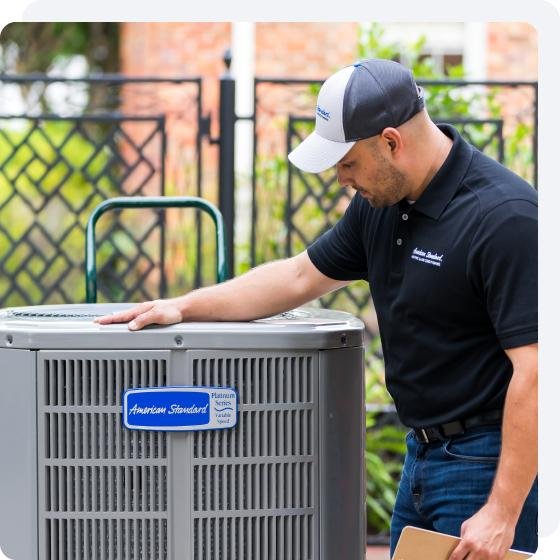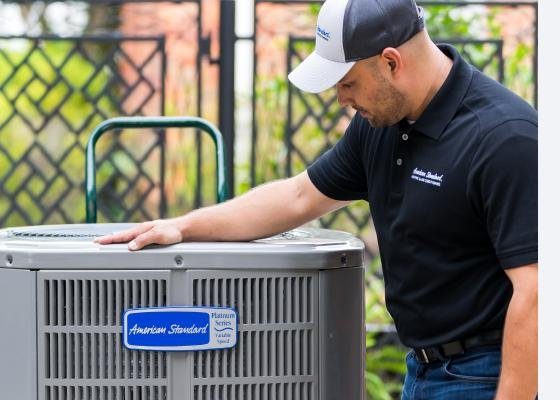
Think about your HVAC system as the heart of your home’s comfort. It keeps you cool in summer and warm in winter, quietly doing its job most of the time. But when it decides to act up, that’s when things get tricky—repairs can be expensive, parts might be tricky to find, and troubleshooting becomes a headache. So here’s the thing: an extended warranty promises peace of mind, but whether it’s worth it depends on several factors, including the brand, your system’s lifespan, and how much you want to gamble on future repair costs.
Understanding What an Extended Warranty Covers For American Standard HVAC
Extended warranties are like an extra layer of protection beyond the manufacturer’s basic warranty. With an American Standard HVAC system, the standard warranty usually covers parts and labor for a set period, often around 5 to 10 years for key components like the compressor or heat exchanger. But after that, you’re flying solo unless you have an extended warranty.
Extended warranties typically cover:
- Repairs for mechanical parts that fail after the original warranty expires
- Labor costs for authorized service technicians
- Sometimes even parts replacement
But here’s a catch—coverage details can vary widely. Some extended warranties might exclude certain components or require you to use specific service providers. You might also have to pay a deductible or service fee for each repair. So before signing up, it’s worth carefully reading the fine print and comparing what’s included versus what you might pay out-of-pocket.
How Often Do American Standard HVAC Systems Actually Need Repairs?
You might be wondering, “How often do these systems break down anyway?” Honestly, American Standard is known for making reliable HVAC units. Like any machine, they aren’t immune to wear and tear, but if you keep up with routine maintenance—think annual tune-ups and timely filter changes—they usually last a solid 10 to 15 years without major issues.
Here’s a way to think about it: if your HVAC system has already made it through the first 5 years, chances are good it won’t need many expensive repairs soon. But if it’s a newer system and you’re worried about those first few years when some manufacturers’ warranties start to wane, an extended warranty might feel safer.
Let’s say you do run into trouble, common problems often include:
- Compressor failures or refrigerant leaks
- Faulty thermostats or sensors that need syncing or resetting
- Electrical component breakdowns, like fan motors or circuit boards
Having an extended warranty could help cover those costs, but you’ll want to weigh the likelihood of these issues against the extra upfront warranty price.
Cost vs. Benefit: Is the Extended Warranty Price Justified?
Here’s where things get a bit tricky—and honest—because it really depends on how you look at risk. Extended warranties for American Standard HVAC systems often range from a few hundred to over a thousand dollars, depending on the coverage length and what’s included. That might sound like a lot, but think of it as an insurance premium for your home comfort.
If a major repair—like replacing a compressor—runs you $1,500 or more, that warranty suddenly feels like a lifesaver. But if your system stays healthy or only needs minor fixes, you might end up paying for that coverage without ever using it.
Things to ask yourself when weighing cost vs. benefit:
- How long do you plan to keep the HVAC system? If you’re selling your home soon, an extended warranty might be less valuable to you.
- Do you have an emergency fund or budget for unexpected repairs? If not, the warranty could provide peace of mind.
- Are you comfortable troubleshooting minor issues yourself, like syncing your thermostat or resetting your unit? This can save money on unnecessary technician visits.
Quality of Service and Repair Options Under Extended Warranty
Something many people overlook: extended warranties sometimes come with service restrictions. For instance, you might be required to call specific technicians authorized by American Standard or their warranty partner. That can be good if those pros know the brand well, but not so great if their availability or response times are slow.
Also, some warranties limit the parts they’ll cover or offer refurbished parts instead of brand-new replacements. You’ll want to ask how the warranty handles these issues because it affects your overall experience.
Pro tip: Check if the warranty includes a troubleshooting hotline or remote support. Sometimes, quick fixes like resetting a system or replacing batteries in your HVAC remote control could save you a service call.
DIY Troubleshooting vs. Warranty Claims: What Can You Handle Yourself?
Honestly, a lot of HVAC problems come down to small fixes you can do yourself before calling in a pro. Maybe your thermostat isn’t syncing properly, or your system needs a reset after a power outage. Even swapping out batteries in your remote or cleaning the air filter can prevent headaches.
An extended warranty won’t save you time if you’re calling for every minor issue. Plus, technicians might charge fees for service calls even if the problem is something simple you could handle after a quick troubleshooting session.
Before reaching for the warranty claim, try:
- Resetting the HVAC system according to the manual
- Ensuring the thermostat is paired and syncing correctly
- Replacing batteries in your HVAC remote
- Checking and replacing clogged or dirty filters
Doing this saves money and keeps your system humming smoothly—sometimes better than relying on warranty claims for avoidable issues.
Comparing Extended Warranty With Other Protection Options
Here’s a fun comparison: extended warranty vs. regular maintenance plans or home warranty policies.
- Maintenance plans generally include annual inspections, tune-ups, and priority service. They keep your system in shape and might catch problems before they become costly repairs. These plans don’t usually cover parts replacement but can be cheaper than extended warranties.
- Home warranty policies can cover HVAC systems along with other appliances. They often have broader coverage but come with their own deductibles and caps. Sometimes, these policies don’t play nicely with manufacturer warranties, so you’ll want to check terms carefully.
In contrast, an extended warranty for your American Standard HVAC is more focused—designed to cover specific parts and repairs beyond the standard warranty period. It’s a more direct way to shield yourself from big repair bills but usually costs more upfront.
When It’s Smart to Skip the Extended Warranty
Look, if you’re someone who loves DIY fixes, keeps a solid maintenance routine, and has a little cash tucked away for emergencies, you might not need an extended warranty at all. American Standard systems are built to last, and with proper care, the chance of major, unexpected repairs drops.
Also, if your HVAC system already comes with a long manufacturer’s warranty—some models have 10 years covered—you could feel comfortable waiting it out and saving that extended warranty money for a future system upgrade.
In short, don’t buy an extended warranty just because everyone else does. Think about your own habits, finances, and how much hassle you want to avoid.
“An extended warranty isn’t a must-have for everyone. It’s more like a safety net for those who prefer to avoid surprises and prefer peace of mind over potential savings.”
Wrapping It Up: Should You Get That Extended Warranty?
So, is an extended warranty worth it for American Standard HVAC systems? The honest answer? It depends on your situation. If you value peace of mind, don’t want to deal with troubleshooting or unexpected repair costs, and plan to keep your system for a long time—then yes, it could be a smart choice.
But if you’re comfortable with basic troubleshooting (like resetting the unit, syncing the thermostat, or swapping out your remote’s battery), keep up with routine maintenance, and have a repair fund handy, you might prefer to skip the extra warranty cost.
In the end, treating your HVAC like a well-loved car—regular check-ups, driving it gently, and knowing how to handle small issues—goes a long way. Whether you decide to get that extended warranty or not, knowing how to care for your American Standard HVAC system will keep your home cozy without breaking the bank.
